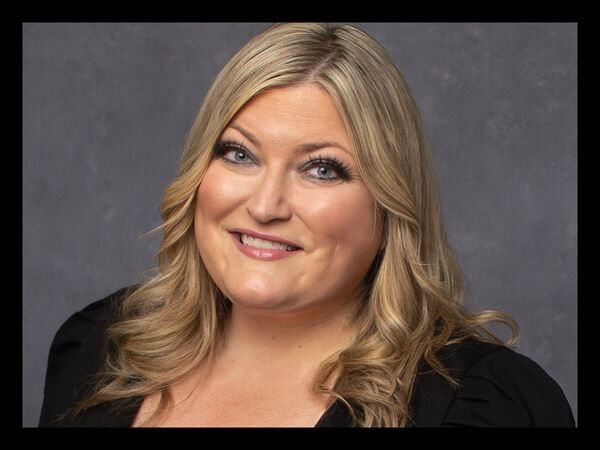What to know as Israel and Hamas exchange hostages and prisoners and Trump visits the Middle East
News > National News

Audio By Carbonatix
11:06 AM on Sunday, October 12
By The Associated Press
In a critical day for the Middle East, Hamas released the 20 living Israeli hostages it still held and Israel released nearly 2,000 Palestinian prisoners under a breakthrough Gaza ceasefire deal.
U.S. President Donald Trump, whose administration brokered the deal, made a whirlwind visit to the region, first to Israel where he addressed the parliament to repeated applause. He landed Monday afternoon in Egypt for the “Summit of Peace” where world leaders are to discuss the ceasefire plan.
More ramped-up aid was being readied for Gaza, much of which is in ruins after two years of war that began when Hamas-led militants attacked Israel on Oct. 7, 2023, killing some 1,200 people and taking 251 as hostages. In Israel’s ensuing offensive, more than 67,600 Palestinians were killed in Gaza, according to Gaza’s Health Ministry.
What we know and what remains unknown:
Monday was day 738 since the hostages were taken, a number many Israelis have updated daily on strips of adhesive tape worn in a national commemoration.
Twenty living hostages were returned Monday to Israel to be reunited with their families and then transferred to hospitals, the Israeli military said.
Hamas first released seven and then 13 hostages. Israel meanwhile said it had freed over 1,900 Palestinian prisoners under the truce agreement. The ceasefire in the two-year Israel-Hamas war is the first phase of a plan brokered by the Trump administration.
Hamas said it will deliver on Monday four of the 28 remains of Israelis it holds in Gaza. It appeared unlikely that the other remains will be returned by the end of the day. Medical experts and advocates say that would be crucial to begin the healing process for many families, and for the Israeli society at large.
One ceasefire document contains stipulations for remains that aren’t returned within 72 hours of the end of the fighting — a deadline that expired around noon Monday. On Sunday, Israel said “an international body” will help locate the remains if they are not released on Monday.
Buses carrying dozens of freed Palestinian prisoners arrived Monday in the occupied West Bank and the Gaza Strip, the Hamas-run Prisoners Office said.
They were the first to be released of about 1,700 people that troops seized from Gaza during the war and have held without charge, as well as about 250 Palestinians serving prison sentences. At least 154 of the Palestinians had been deported to Egypt from the West Bank as per stipulations in the deal.
Many are members of Hamas and the Fatah faction who were imprisoned over shootings, bombings or other attacks that killed or attempted to kill Israelis, as well as others convicted on lesser charges. They’ll return to the West Bank or Gaza, or be deported elsewhere.
Humanitarian organizations have said they’re preparing to surge aid into the Gaza Strip, especially food that’s been in short supply in many areas.
That included some 400 trucks from Egypt on Sunday that will have to undergo Israeli inspection before being distributed in the strip. The Israeli defense body in charge of humanitarian aid in Gaza said around 600 trucks of aid per day will be entering soon, under the ceasefire agreement.
The world’s leading authority on food crises said in August that the Gaza Strip's largest city was gripped by a famine that was likely to spread across the territory without a ceasefire and an end to restrictions on humanitarian aid.
The Integrated Food Security Phase Classification said famine was devastating Gaza City — home to hundreds of thousands of people. That famine was expected to spread south to the cities of Deir al-Balah and Khan Younis by around now if the situation did not change.
The larger task of rebuilding Gaza is daunting, as much of it is in rubble and most of its two million residents displaced.
Israeli Prime Minister Netanyahu and President Isaac Herzog greeted Trump, first lady Melania Trump, his daughter Ivanka Trump and her husband Jared Kushner, as well as adviser Steve Witkoff, a key envoy.
Trump met with families of hostages and spoke at the Knesset, Israel's parliament, which welcomed him as a hero with standing ovations and chants of his name.
“Generations from now, this will be remembered as the moment that everything began to change,” Trump told lawmakers in his the speech. “Now it is time to translate these victories against terrorists on the battlefield into the ultimate prize of peace and prosperity for the entire Middle East.”
Afterwards, Trump flew to Egypt, where he was briefly escorted by Egyptian warplanes before touching down Monday afternoon in Sharm el-Sheikh. At the resort town on the Red Sea, he was set to co-host with Egyptian President Abdel-Fattah el-Sissi a summit with leaders from more than 20 countries on the future of Gaza and the broader Middle East.
The ceasefire and release of hostages is the first step in the plan proposed by Trump. Competing demands remain on the next steps, casting uncertainty on whether the conflict is indeed over.
Israel wants Hamas to disarm, and Hamas wants Israel to pull its troops out of all of Gaza. The future of Gaza’s government, which has been in Hamas’ hands for two decades, also remains to be worked out.
Gaza's Health Ministry doesn’t differentiate between civilians and combatants but says around half of the 67,600 in Gaza deaths were women and children. The ministry is part of the Hamas-run government, and the United Nations and many independent experts consider its figures to be the most reliable estimate of wartime casualties
___
Follow AP’s war coverage at https://apnews.com/hub/israel-hamas-war













